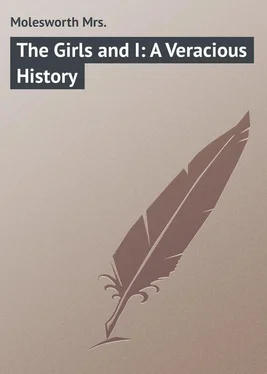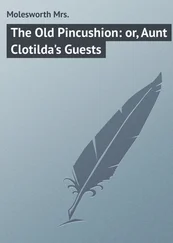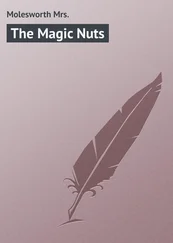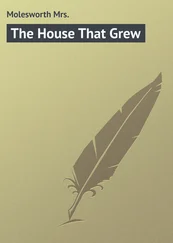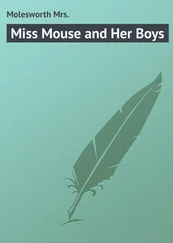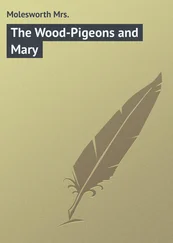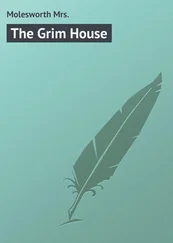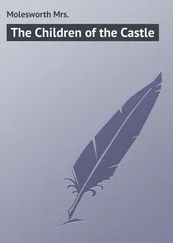Mrs. Molesworth - The Girls and I - A Veracious History
Здесь есть возможность читать онлайн «Mrs. Molesworth - The Girls and I - A Veracious History» — ознакомительный отрывок электронной книги совершенно бесплатно, а после прочтения отрывка купить полную версию. В некоторых случаях можно слушать аудио, скачать через торрент в формате fb2 и присутствует краткое содержание. Жанр: foreign_prose, foreign_children, на английском языке. Описание произведения, (предисловие) а так же отзывы посетителей доступны на портале библиотеки ЛибКат.
- Название:The Girls and I: A Veracious History
- Автор:
- Жанр:
- Год:неизвестен
- ISBN:нет данных
- Рейтинг книги:5 / 5. Голосов: 1
-
Избранное:Добавить в избранное
- Отзывы:
-
Ваша оценка:
- 100
- 1
- 2
- 3
- 4
- 5
The Girls and I: A Veracious History: краткое содержание, описание и аннотация
Предлагаем к чтению аннотацию, описание, краткое содержание или предисловие (зависит от того, что написал сам автор книги «The Girls and I: A Veracious History»). Если вы не нашли необходимую информацию о книге — напишите в комментариях, мы постараемся отыскать её.
The Girls and I: A Veracious History — читать онлайн ознакомительный отрывок
Ниже представлен текст книги, разбитый по страницам. Система сохранения места последней прочитанной страницы, позволяет с удобством читать онлайн бесплатно книгу «The Girls and I: A Veracious History», без необходимости каждый раз заново искать на чём Вы остановились. Поставьте закладку, и сможете в любой момент перейти на страницу, на которой закончили чтение.
Интервал:
Закладка:
And when dessert was on the table, and the servants had gone, father called Anne to him, and put his arm round her.
'My dear little girl,' he said, 'you must try to leave off crying. It only makes mother more troubled. I can't deny that this loss is a great vexation: it will annoy grandfather, and – well, there's no use telling you what you know already. But of course it isn't as bad as some troubles, and even though I'm afraid I can't deny that it has come through your fault, it isn't as bad as if your fault had been a worse one – unkindness, or untruthfulness, or some piece of selfishness.'
Anne hid her face on his shoulder, and sobbed and choked, and said something we couldn't hear.
'But still carelessness is a great fault, and causes troubles without end,' father went on. 'And in this case it was meddlesomeness too. I do hope – '
'Oh, father,' said Anne, looking up, 'I know what you're going to say. Yes, it will be a lesson to me: you'll see. I shall be quite different, and ever so much more thoughtful and careful from now.'
And of course she meant what she said.
But father looked grave still.
'My dear child, don't be too confident. You won't find that you can cure yourself all at once. The force of bad habit is almost harder to overcome in small things than in great: it is so unconscious.'
'Yes, father,' said Anne.
She understood what he said better than I did then; for she is really clever – much cleverer than I am about poetry and thinking sort of cleverness, though I have such a good memory. So I remembered what father said, and now I understand it.
After dinner we went up to the littlest drawing-room – the one mother wanted for so long to refurnish prettily. There was a fire, for it was only March, and mums sat in one of the big old armchairs close to it, and Anne and Hebe beside her. And father drew a chair to mums' writing-table, and wrote out several advertisements for the next morning's papers, which he sent off to the offices that very evening. Some were in the next morning, and some weren't; but it didn't much matter, for none of them did any good. Before he sent them he inquired of all the servants if they had looked everywhere he had told them to.
'There is just a chance of daylight showing it in some corner,' he said, when he had done all this, and come to sit down beside mums.
'I don't know that,' she said. 'This house is so dark by day. But, after all, the chance of its being here is very small.'
'Yes,' father said, 'I have more hope in the advertisements.'
'And,' mother went on, her voice sounding almost as if she was going to cry – I believe she kept it back a good deal for Anne's sake – 'if – if they don't bring anything, what about telling your father, Alan?' 'Alan' is fathers name – 'Alan Joachim,' and mine is 'Joachim Gerald.'
Father considered.
'We must wait a little. It will be a good while before I quite give up hopes of it. And there's no use in spoiling gran's time in Ireland; for there's no doubt the news would spoil it – he's the sort of person to fret tremendously over a thing of the kind.'
'I'm afraid he is,' said mother, and she sighed deeply.
But hearing a faint sob from Anne, father gave mother a tiny sign, and then he asked us if we'd like him to read aloud a little sort of fairy story he'd been writing for some magazine. Of course we all said 'Yes': we're very proud if ever he offers to read us anything, even though we mayn't understand it very well; but this time we did understand it – Anne best of all, I expect. And when he had finished, it was time for us to go to bed.
We had had, as I told you, rather an extra nice evening after all, and father had managed to make poor mums more cheerful and hopeful.
It got worse again, however, the next day, when the hours went on, and there came no letter or telegram or anything about the lost treasure. For mother had got to feel almost sure the advertisements would bring some news of it. And father was very late of coming home. It was a dreadfully busy time for him just then. We were all in bed before he came in, both that night and the next I remember, for I know he looked in to say good-night to me, and to say he hoped we were all being as good as we could be to mums.
I think we were, and to Anne too, for we were nearly as sorry for her. I had never known her mind about anything so much, or for so long. Serry began to be rather tired of it.
'It's so awfully dull to see Anne going about with such a long face,' she said the second evening, when we were all sitting with mother. 'Mums herself doesn't look half so gloomy. Mums, do tell Anne not to be so cross; it can't be as bad for her as for you.'
'You're very unkind, Serry,' said Maud, bristling up for Anne; 'and, after all, I think you might feel a little sorry too. You joined Anne in looking over all mother's things that night, you know you did, and you only laughed when I said you'd left them in a mess.'
Serry only laughed now. She tossed back her fluffy hair – it's a way of hers, and I must say she looks very pretty when she does it.
'It's not my nature to fuss about things,' she said. 'It wouldn't suit my name if I did; would it, mums? And you are such a little preacher, Maud.'
It was funny to hear Maud. It's funny still, for she looks such a mite, but two years ago it was even funnier. For she was only six and a half then, though she spoke just as well as she does now. I can't remember ever hearing Maud talk babyishly.
'Don't begin quarrelling about it, my dear children,' said mother. 'That certainly won't do any good. And, Anne, you must just try to put it off your mind a little, as I am doing.'
'I can't ,' said Anne. 'I've never been so long sorry about anything in my life. I didn't know any one could be. I dream about it all night, too – the most provoking dreams of finding it in all sorts of places. Last night I dreamt I found it in my teacup, when I had finished drinking my tea, and it seemed so dreadfully real , you don't know. I could scarcely help thinking it would be in my cup this morning at breakfast.'
'Oh,' said Serena, 'that was why you were staring at the dregs so, and sighing so dolefully.'
But Anne didn't pay any attention to her.
'Mother,' she said, 'you don't think it could mean anything – my dream, I mean? Could it be that we are to look all through the teacups in the pantry, for you know there were a great lot in the drawing-room that day, and it might have dropped into one that wasn't used, and got put away without being washed.'
Mums smiled a little.
'I'm afraid that's wildly improbable,' she said; 'but if you like to go downstairs and tell Barstow about your dream, you may. It may inspirit them all to go on looking, for I'm afraid they have given up hopes.'
Barstow is the butler. He's very nice, and he was with father since he – I mean, father – was a baby; he's been always with gran, or what he calls 'in the family.' He's only got one fault, and that is, he can't keep a footman. We've just had shoals , and now father and mother say they really can't help it, and Barstow must settle them for himself. Since they've said that, the last two have stayed rather longer.
But he's most exceedingly jolly to us. Mums says he spoils us, but I don't think he does, for he's very particular. Lots of footmen have been sent away because he didn't think they spoke properly for us to hear. He was terribly shocked one day when Serry said something was 'like blazes,' and still worse when he caught me pretending to smoke. He was sure James or Thomas had taught me, say what I would, and of course I was only humbugging.
I think mums sent Anne down to talk to old Barstow a bit, partly to cheer her up. Anne was away about ten minutes. When she came back she did look rather brighter, though she shook her head. She was holding a note in her hand.
Читать дальшеИнтервал:
Закладка:
Похожие книги на «The Girls and I: A Veracious History»
Представляем Вашему вниманию похожие книги на «The Girls and I: A Veracious History» списком для выбора. Мы отобрали схожую по названию и смыслу литературу в надежде предоставить читателям больше вариантов отыскать новые, интересные, ещё непрочитанные произведения.
Обсуждение, отзывы о книге «The Girls and I: A Veracious History» и просто собственные мнения читателей. Оставьте ваши комментарии, напишите, что Вы думаете о произведении, его смысле или главных героях. Укажите что конкретно понравилось, а что нет, и почему Вы так считаете.
